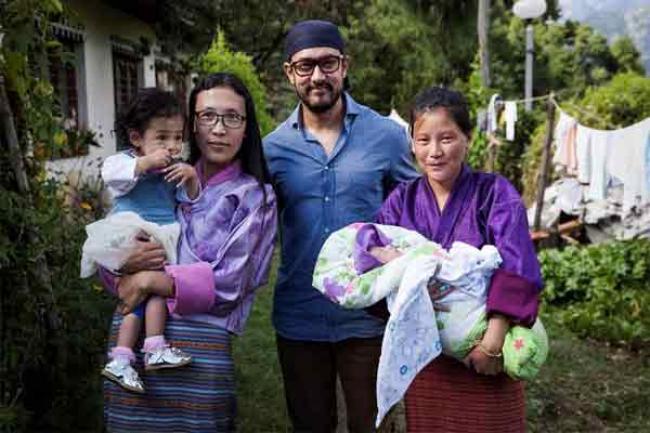Just Earth News 20 Oct 2016

UNICEFROSA/2016/PBrown
“While Bhutan has made amazing progress in areas of health and nutrition, there’s still work to be done and every child is yet to be reached,” said the Goodwill Ambassador.
A 2015 National Nutrition Survey revealed that although 98 per cent of households in Bhutan have access to food, 88 per cent of children between the ages of six and 23 months are not receiving the nutrition that they need. Throughout South Asia, an estimated 38 per cent, or 64 million children under the age of five are affected by stunted growth, which leads to cognitive and physical limitations. In Bhutan, one in five children is stunted.
Khan met with women and their children at the Drukgyel Basic Health Unit in Paro, including Namgay Zam, who gave birth 20 days before. His visit brought attention to the efforts of the UN Children’s (UNICEF), the Royal Government of Bhutan, and their partners to improve nutrition among young children and women throughout their pregnancies.
“We are delighted that Aamir Khan is here in Bhutan to help us shine a light on the impact of undernutrition and to show how by working together we can reduce stunting in children across the country,” remarked UNICEF Bhutan Representative Rudolf Schwenk.
In a press release, UNICEF called South Asia the “epicentre of the global child stunting crisis, compromising the future of the whole region.”
Stunting is caused by poor diet during the first two years in life, as well as inadequate nutrition before and during pregnancy, and poor sanitation conditions in households and communities. It has long-term effects on a child’s wellbeing and is an important indicator of social inequalities.
South Asian countries have endorsed global targets to reduce the number of stunted children by 40 per cent by 2025. In order to achieve this goal, UNICEF urges South Asian governments to invest in programs specifically designed to target childhood stunting.